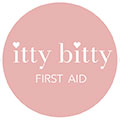Pets And Essential Oils
Posted by Dr Kat Lovell on 5th Apr 2020
There is much discussion in the veterinary industry about essential oils and their potential effects on pets. Given the controversy, I had never been tempted to have diffusers in the house, despite my intense love of all things that smell good! Fast forward one horrendous flu season with a toddler and large veterinary team who suffered from never ending rounds of cold and flu, and I was ready to rethink my decision.
What Are Essential Oils?
Essential oils are oils typically extracted from the roots, leaves and stems of plants. They have a powerful fragrance (or “essence”) of that plant. They aren’t true oils in the chemical sense of being long chains of fatty acids. For instance, olive oil and olive essential oil are two different things. Rather, essential oils are derived from certain volatile compounds within a plant.
I started researching and found some great tips that pet owners can follow to make sure their pets stay safe whilst still be able to reap the benefits we know essential oil diffusers have on our bodies and minds.
As a professional vet in Queensland, I am pleased to say that by following these tips we have had no issues with any of our beloved pets (a cockateil named Dante, a Russian Blue cat called Doulton, and a stumpy tail cattle dog, Trixie).
General Guidelines for Pet Safety
- Dogs and cats have far more advanced olfactory senses than we as humans do, and as such, they are much more sensitive to diffuser scents. Make sure the diffuser is placed in a well ventilated room, and that your pet has a clear and easy exit in case they become overwhelmed by the scent
- Animals do not have the same metabolic capabilities and pathways as we do, and as such, care must be taken. Cats in particular lack the necessary liver enzyme (glucuronyl transferase) to break down many of the compounds in essential oils, and are sensitive to build up of these compounds over time.
- Cats are especially sensitive to eucalyptus, pine, citrus, peppermint, cinnamon, tea tree, wintergreen, peppermint, Ylang-ylang and clove oils (please note this is not an exhaustive list). Use these with caution and make sure they are in well ventilated areas away from your cat’s normal rest, play and eating areas.
- Avoid using the same blends over extended periods of time to try and minimise compound build up.
- Keep the diffuser out of reach of your pet, and do not leave oils in water dishes at ground level.
- Never use diffusers around birds and fish. They do not have the 'escape route' option a cat or dog has, and are far more sensitive to even the slightest whiff of most oils.
- If you decide to use a diffuser and/or oils in any form, make sure they are pure compounds, made by a reputable company with customer support available.
- Using oils in diffusers is very different to topical or oral application because oils in diffusers are heavily diluted. NEVER apply oils to or give oils orally (including them to lick oil on you or in bowls, diffusers etc) to pets unless under the direct supervision of a qualified and experienced holistic veterinarian.
- If your pet shows any symptoms of irritation - including sneezing, coughing, vomiting, lack of appetite or dermatitis - make sure you tell your veterinarian what oils you have been using so that they can use that information when investigating what it is that’s making your pet sick.
- Finally, if you have any concerns about the use of oils and your pets, make sure you speak with your veterinarian and also the customer support team from where you purchase the products.
Complex Oils To Avoid With Pets
The general list to avoid with cats include but are not limited to:
- Wintergreen
- Sweet birch
- Citrus (d-limonene)
- Pine
- Ylang ylang
- Peppermint
- Cinnamon
- Pennyroyal
- Clove
- Eucalyptus
- Tea tree (melaleuca)
- Thyme
- Oregano
- Lavender
The general list to avoid with dogs include but are not limited to:
- Cinnamon
- Citrus (d-limonene)
- Pennyroyal
- Peppermint
- Pine
- Sweet birch
- Tea tree (melaleuca)
- Wintergreen
- Ylang ylang
- Anise
- Clove
- Thyme
- Juniper
- Garlic
I am very pleased to say that our HUSH Vaporiser has changed our nights! The gorgeous scent, calming songs and light options are a major part of our bedtime routine, and little Carter loves selecting what song and light setting he wants to go to sleep with.
As they say - a good laugh and a long sleep are the two best cures for anything, and we are absolutely in love with our diffuser and the benefits it brings!
By Dr Katria Lovell BVSc (Hons), BSc (Equine Science)
Veterinarian, Redlands Veterinary Clinic
President, Brisbane Division, Australian Veterinary Association
















